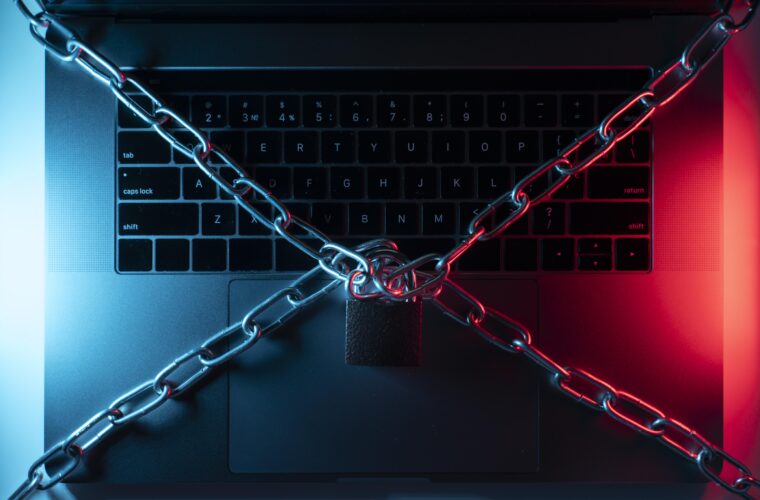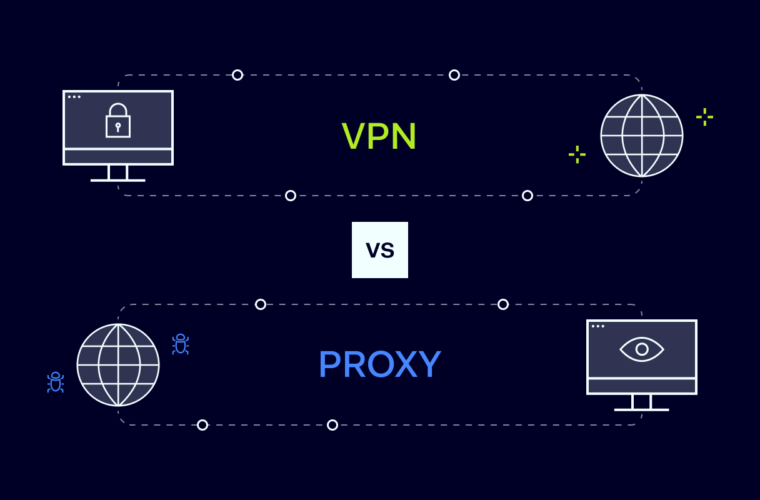Interview: Cho Sung-woo, Country Manager at Nord Security
Soaring through its global competitors, NordVPN has become one of the biggest virtual private network providers across the world. NordVPN operates over 5,500 servers in 59 countries, with a massive user base of more than 15 million individual users and 5,000 enterprises as of today.
The company behind such a successful VPN service is Nord Security, an IT security company founded in Lithuania in 2012. It is run by more than 1,000 international employees, with seven different regional offices, including Germany, Poland, the Netherlands, the United Kingdom, and the United States. A company that gives a range of privacy protection solutions, from file encryption tool NordLocker to enterprised-targetting VPN NordLayer to VPN development toolkit NordWL, Nord Security has been working on ways to expand its consumer reach and introduce innovative ways to protect networks of their users.
4i Magazine interviewed Mr Cho Sung-woo, Country Manager at the South Korea branch of NordVPN, to hear more about the company’s past and the future ahead and some tips on how to keep your cyberlife secure.
What is your role at Nord Security?
As a Country Manager of NordVPN, I have a range of responsibilities related to overseeing and managing operations within the South Korean market. Building a business in a new market starts from developing and implementing strategies to expand the company’s market presence. To that end, analysing market trends, customer needs, and the competitive landscape to identify growth opportunities are fundamental duties. I also serve as the local face of the company, representing its values and brand and cultivating strong relationships with customers and partners.
What does a day at your work look like?
The typical day of a Country Manager at NordVPN is very dynamic and varied, as it involves managing a range of responsibilities related to business operations, strategy, and leadership. My morning routine is like beginning the day by reviewing emails and communication from the global headquarters or other team members in different time zones. Conduct a brief review of key performance metrics, sales figures, and any overnight updates. During the day, I explore and pursue new business opportunities, partnerships, or collaborations, as face-to-face meetings are essential to build relationships in South Korea. At the end of the day, in the evening time, I mostly conduct a final review of the day’s activities and outcomes and respond to any urgent emails or communications from global teams before concluding the workday.
Why did Nord Security establish the South Korean branch?
The South Korea branch was established in November 2020. Companies may establish branches or offices in different countries for various reasons, including expanding their market presence, complying with local regulations, improving customer support in specific regions, or optimising infrastructure for better performance.
However, South Korea has a technologically advanced and digitally connected population, making it an attractive market for cybersecurity companies looking to expand their user base. Furthermore, the South Korean population is known for being tech-savvy and early adopters of new technologies. This makes it an excellent market for the company looking to test and introduce innovative products.
Why do Koreans use VPNs?
Koreans, like many individuals around the world, use VPNs for various reasons, and the high internet use time in the country is just one factor contributing to the widespread adoption of VPNs. However, less than half of South Koreans were aware of the risks associated with the potential leakage of personal information and various malware infections while using the internet. Only 36 per cent took practical measures, such as using security services or apps to prevent these threats. This indicates that South Koreans may need to learn more about how to keep themselves safe online.
Please introduce what Nord Security does to protect users’ cybersecurity.
First and foremost, our flagship product, NordVPN, employs cutting-edge encryption protocols to secure users’ internet connections, shielding them from potential threats such as cybercriminals, hackers, and other malicious actors. By encrypting online traffic and masking IP addresses, we empower users to browse the internet with confidence and privacy.

Additionally, Nord Security is dedicated to staying ahead of emerging cyber threats. We continuously invest in research and development to enhance our services, incorporating the latest technologies and security measures into our products. Our team of experts works tirelessly to identify and address vulnerabilities, ensuring that our customers receive the highest level of protection.
Moreover, we understand the importance of user education in the realm of cybersecurity. Nord Security provides valuable resources and educational materials to empower our users with knowledge about online threats and best practices for digital safety. By fostering a proactive and informed user community; we believe we can collectively contribute to a safer online environment.
Furthermore, our commitment to transparency is evident through our strict no-logs policy. We do not collect or store any user data, thereby ensuring that our customers’ online activities remain private and secure.
In summary, Nord Security is dedicated to creating a secure digital space for our users by leveraging advanced encryption technologies, staying ahead of evolving cyber threats, promoting user education, and maintaining a strong commitment to user privacy. We believe that these comprehensive measures collectively contribute to a robust cybersecurity framework for our customers.
How did Covid-19 impact the health of our cybersecurity?
The COVID-19 pandemic has significantly impacted the cybersecurity landscape, introduced new challenges, and exacerbated existing vulnerabilities. The widespread adoption of remote work and the increased reliance on digital communication tools have created a fertile ground for cyber threats.
Here are some key ways in which COVID-19 has influenced cybersecurity:
Rise in phishing attacks: With the surge in remote work, there has been a corresponding increase in phishing attacks. Cybercriminals exploit the uncertainty and fear surrounding the pandemic by using COVID-19-related themes in phishing emails and messages. These attacks often lure individuals to click on malicious links or download infected attachments.
Increased remote work risks: The abrupt shift to remote work has expanded the attack surface for organizations. Home networks may lack robust security measures in corporate environments, making them more susceptible to cyber threats. Cybercriminals capitalize on weak links in home networks, targeting employees working from less secure environments.
Vulnerabilities in telehealth systems: The demand for telehealth services has soared during the pandemic, but this has also exposed vulnerabilities in healthcare IT systems. Cyberattacks on healthcare organizations have increased, posing risks to patient data and potentially disrupting critical healthcare services.
Exploitation of pandemic-related apps: The proliferation of apps related to COVID-19, such as contact-tracing apps and vaccine appointment platforms, has given rise to malicious actors creating fake or compromised versions. Users downloading these apps may unknowingly expose themselves to malware or data breaches.
Sophistication of cyber-attacks: Cybercriminals have adapted their tactics to exploit the pandemic, leading to more sophisticated and targeted attacks. This includes leveraging social engineering techniques and using COVID-19 as a theme to deceive individuals and gain unauthorized access to systems.
Focus on cybersecurity awareness: On a positive note, the heightened awareness of cybersecurity risks during the pandemic has prompted organizations and individuals to prioritize cybersecurity measures. This includes investing in secure communication tools, implementing robust authentication practices, and educating users about cyber threats.
How can people be safe from cybercrime?
There are a vast number of dangers related to cybercrime on the internet, listed below:
Do not surf via public WLAN hotspots: Criminals use public WLAN networks to spy on your data. Especially in unprotected online hotspots, it’s easy for hackers to grab bank details and log-ins. Therefore, special caution is advised. If you ever connect to a hotspot in a coffee shop or airport, be sure to use a VPN.
Use strong passwords: Your pet’s name or your mother’s birthday are not alternatives for a good password – instead, use complex passwords that contain numbers, letters and special characters. Tools like NordPass’s password manager can help you easily create complex passwords and keep them safe in a virtual vault. The built-in autofill feature allows passwords to be easily inserted into login fields.
Don’t click on links and attachments: As we have seen, phishing is one of the biggest and most common problems for users. Therefore, users should avoid opening or downloading attachments from unknown sources – even if they know the sender, be sure to check if it is him.
Updates are the be-all and end-all of cybersecurity: Software updates often fix vulnerabilities that criminals could otherwise exploit to get your data.
Backup your data: To make sure you don’t lose all your files in a ransomware attack, you should back them up. In case of a cyberattack that threatens to erase your data, a backup is very useful because then, in the best-case scenario, you won’t have to respond to the ransom demand.
Use an antivirus programme: An antivirus program scans your devices and helps you detect and remove malicious software. NordVPN also offers a threat protection feature in its app that blocks malicious ads, websites, trackers, and viruses. The app also offers a URL trimmer, which removes unhashed tracking parameters revealing information about your internet habits, such as your search history and interests.
Install tracker blocker: These stop your browser from collecting information about you and may also work as an ad blocker. Some tracker blockers, like NordVPN’s Threat Protection, offer other cybersecurity features, like malware protection.
Use privacy browsers: Get an internet browser tailored explicitly for people with online privacy in mind: no auto-syncing, no spell-check, no auto-fill, and no plug-ins.
What were Nord Security’s main projects in 2023?
The first year was all about getting in customers’ minds. We have successfully defined NordVPN’s unique value proposition and identified the right customer segment. One of the key missions in 2023 was building a strong partner ecosystem. Like many other markets, South Korea has a unique business environment, cultural nuances, and regulatory landscape. A well-crafted partner ecosystem can help a company navigate these complexities and enhance its chances of success.
What are Nord Security’s outlooks for 2024?
Mr Cho: 2024 is about market leadership. As a market leader in the cyber security industry, Nord Security will play a crucial role in solving customer difficulties by implementing a customer-centric approach that focuses on understanding, addressing, and resolving customer pain points. As our lifestyles have shifted to digital, we face unprecedented cyber security risks such as QR phishing, smishing, and AI-powered malware. We strive to become consumers’ most beloved cybersecurity service by helping them achieve a secure digital lifestyle.



